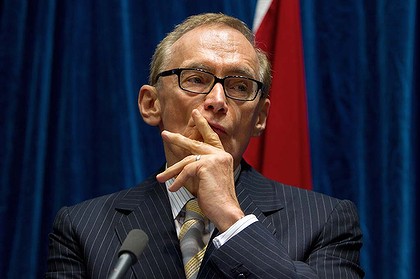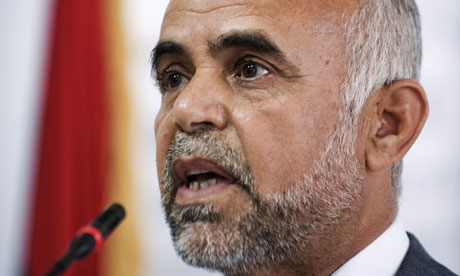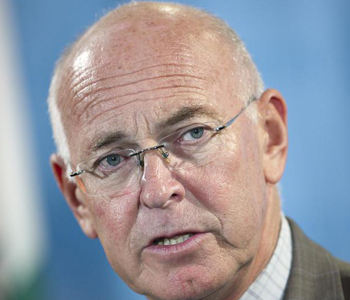http://www.aljazeera.com/news/africa/2012/06/20126176734750314.html
http://www.libyaherald.com/australian-foreign-minister-in-libya-for-talks-on-melinda-taylor-case/
http://www.libyaherald.com/ntc-spokesman-mohammed-harizi-has-resigned/
http://www.libyaherald.com/icc-still-not-denying-melinda-taylor-allegations/
http://www.libyaherald.com/chadian-tebu-forces-reportedly-enter-libya-to-join-fighting-around-kufra/


Read more: http://www.smh.com.au/world/libya-descends-into-militia-chaos-as-hostages-still-held-20120615-20fco.html#ixzz1y3wmSFXLHe says Tripoli is in danger of becoming like Baghdad in 2005, with different groups controlling turf and instituting neighbourhood political economies. The government's decision to delay elections for a national congress scheduled for June 19 until July 7 was a symptom of the chaos.
| Troops sent to quell clashes in western Libya | ||||||||
Government sends military to stop clashes between rival armed groups that have killed 16 people.
Last Modified: 17 Jun 2012 16:34
| ||||||||
Omar Al Saleh reports from Tripoli of controversial security force comprised of former rebel fighters [Reuters]
| ||||||||
Libya's government has sent troops to put an end to six days of clashes between rival armed groups in the west of the country.
The fighting, which left least 16 people killed and scores of others injured, is the latest episode of instability eight months since the collapse of Muammar Gaddafi's regime after a months-long conflict.
As it seeks to impose its authority on a fractious country, Libya's new leadership on Saturday called for an immediate ceasefire in the fighting south of the capital Tripoli.
and......
http://www.aljazeera.com/news/africa/2012/06/201261813164556680.html
|
http://www.libyaherald.com/australian-foreign-minister-in-libya-for-talks-on-melinda-taylor-case/
Australian Foreign Minister in Libya for talks on Melinda Taylor case
By George Grant.
Tripoli, 18 June:
Australia’s foreign minister, Bob Carr, arrived in Tripoli today for talks with the government about the detained International Criminal Court (ICC) lawyer Melinda Taylor.
Carr met with both Prime Minister Abdurrahman El-Kib and Foreign Minister Ashour Bin Khayal in a bid to step up pressure on the government to release Taylor, who is an Australian national, from custody in Zintan.
The minister is in the region for a meeting of the Non-Proliferation and Disarmament Initiative in Istanbul, and for one-day meetings in Algeria and Morocco.
Carr said in a statement that he had “modest expectations” for today’s talks, because the government has made clear its intention to properly investigate Taylor’s case, which may take considerable time.
In spite of this, Carr said it was his intention to “press the case that Ms Taylor is in Libya under the mandate of the ICC and United Nations Security Council, and this mandate provides a legal immunity.”
In addition to bringing charges against Taylor and her Lebanese interpreter, Helene Assaf, the government is also understood to be challenging the ICC’s mandate in Libya. Under the Rome Statute of the ICC, the court is only entitled to investigate cases where the national authorities in a given jurisdiction are deemed either unable or unwilling to prosecute a case. The Libyan government contends that it is both willing and able to try Saif Al-Islam Qaddafi, and hence the ICC has no right to be involving itself in the case whatsoever.
The ICC’s mandate to investigate charges against Saif was originally provided by the United Nations Security Council, during last year’s revolution.
The significance of this contention, according to one informed source close to Carr, is that it may lead to the government’s challenging Taylor’s right to diplomatic immunity, which she currently holds by virtue of her status as an appointed representative of the ICC. “I’m not saying one could lead directly to the other”, the source said, “but things might start to head in that direction”.
A spokesman for Carr confirmed to the Libya Herald that the minister had yet to be provided with any evidence regarding the allegations, although he did not speculate as to whether or not the evidence actually exists.
The spokesman added that Carr had offered to mediate discussions between the ICC and the government, if that would help to expedite a speedy resolution to the matter, and Taylor’s release.
and.....
http://www.libyaherald.com/ntc-spokesman-mohammed-harizi-has-resigned/
NTC Spokesman Mohammed Harizi has resigned
Tripoli, 17 June:
The official spokesman of the NTC, Mohammed Harizi, has resigned. His decision follows allegations that he intentionally altered an official NTC statement regarding a meeting held between the Muslim cleric, Ali Salabi, and a group of former Qaddafi officials led by the cousin of the slain dictator, Ahmed Qaddaf El-Dum. The meeting took place in Cairo on 27 May.
Harizi’s replacement is Salah Darhoub, the NTC member for Janzour, who will be in the post for just three weeks before nationwide elections are held on 7 July, at which point the council’s term comes to an end.
According to NTC Chairman Mustafa Abdul Jalil, the alteration to the statement did not change its overall meaning, but Harizi’s unilateral decision was nonetheless inconsistent with his mandate as spokesman.
The meeting between Salabi and El-Dum caused considerable consternation amongst several NTC members and broader sections of the Libyan public. Salabi has maintained that he was authorised by Jalil to conduct the meeting as part of Libya’s efforts towards national reconciliation. However, a senior government source informed the Libya Herald this evening that Salabi was in fact only authorised to meet with Libyan families in Cairo, and not senior Qaddafi personnel.
and...
Libya’s UN chief calls for end to Kufra and Zintan-Shagiga conflicts, stresses need to address root causes
Tripoli, 17 June:
The head of the UN mission in Libya, Ian Martin, today expressed his concern about the resumption of hostilities across a number of localities in Libya, and urged the Libyan authorities and all others involved to implement those measures necessary to end the fighting.
“It is of the utmost importance that the government acts swiftly to de-escalate these conflicts and to ensure the protection and well-being of civilians”, Martin said. “The wounded need to be able to urgently access medical care, and basic humanitarian support and services must be restored to the people affected by the fighting in accordance with international humanitarian law.”
Over the past week fighting fighting has broken out around Kufra in the southeast and around Zintan and Shagiga in the Nafusa Mountains, with large numbers of people being killed and wounded in both areas.
The government first deployed the army to Kufra in February, shortly after the outbreak of hostilities between Tebu tribesmen and the town’s Arab Zway majority. Yesterday, government forces were also sent to the Zintan-Shagiga region to broker a resolution to the conflict there. Both areas are now considered to be “military zones”, severely restricting travel.
Although different in many respects, both conflicts have their roots in divisions sown by the Qaddafi regime, made worse in the upheaval and aftermath of last year’s revolution. In the Zintan-Shagiga area, fighting has predominantly been between forces from Zintan, who supported the revolution, and members of the Mashasha tribe, who largely opposed it. Smuggling and commerical rivalries have played an important role in the conflict around Kufra, but divisions between Tebu and Arabs were exacerbated by Qaddafi’s modus operandi of “divide and rule” over many years.
In his statement today, Martin stressed the need for “sustained efforts… to address the causes and consequences of local conflicts, in the spirit of the commitment of the National Transitional Council and the Government to national reconciliation”.
and.....
http://www.libyaherald.com/icc-still-not-denying-melinda-taylor-allegations/
ICC still not denying Melinda Taylor allegations
By George Grant.
Tripoli, 16 June:
The International Criminal Court (ICC) said yesterday that it was “very keen to address any regrettable misunderstandings” about the mandate of the legal team led by detained Australian lawyer Melinda Taylor.
The court added that it “welcomes the assistance provided by the Libyan authorities to date” and renewed its call for the release of Taylor and three other ICC delegates, who have been held in Zintan by militia there since 7 June.
In the statement, the ICC failed to offer a refutation of the allegations being made against Taylor and her Lebanese interpreter, Helene Assaf, and the court has yet to do so. In recent days, a number of informed sources have suggested to the Libya Herald that some of the allegations may in fact be credible.
Taylor has been accused by both the commander of the Zintan brigade, Ajmi Al-Atiri, and the official spokesman of the NTC, Mohammed Harizi, of attempting to hand over “dangerous” documents to Saif Al-Islam Qaddafi. Taylor has been appointed by the ICC to represent Saif’s defence interests.
Amongst these documents are allegedly coded letters written by Saif’s fugitive right-hand man, Mohammed Ismail, with whom Taylor’s captors believe she has been in contact. Taylor has also allegedly been found in possession of a blank letter marked only with Saif’s signature, as well as a letter from Saif in which he complains of mistreatment at the hands of his captors and the absence of the rule of law in Libya. Assaf, meanwhile, is said to have been found in possession of a “spy camera”.
Taylor is not Saif’s appointed defence lawyer, and as such is not authorised to pass him any documents, from any source, that are not first authorised by the ICC. Saif has not yet appointed a defence counsel, and not until he has done so will that individual be at liberty to freely exchange correspondence with him.
All of the materials were allegedly found on Taylor and Assaf when they were arrested immediately following a meeting with Saif on 7 June. It is understood that the other two members of the ICC delegation, Russian Alexander Khodakov and Spaniard Esteban Peralta Losilla, have been told they are free to leave, but have volunteered not to do so until their two female colleagues are also released.
As representatives of the ICC, all four members of the delegation have diplomatic immunity, which is intended to shield them from arrest or prosecution. In spite of this, the prosecutor-general’s office has said that both Taylor and Assaf would be detained for a period of 45 days whilst an investigation is carried out.
When asked by the Libya Herald whether the ICC would issue a formal denial of the charges, Fadi El Abdullah, the court’s official spokesman, said: “No, we are not saying that… This is speculation in the media. Our official interlocutor has not given us any information from the Libyan authorities [about the allegations]”. Abdullah said that until such a formal submission was received, the ICC would not confirm or deny the claims.
He added that any documentation that passed between Taylor and Saif Qaddafi should remain confidential. “Any documentation that can be exchanged is part of their relationship”, he said. “That is what it means to have a privileged meeting. We don’t enter into the minutiae of these meetings; that’s between the lawyer and her client”.
Abdullah also refused to be drawn on what the ICC meant when it spoke of “regrettable misunderstandings” with the Libyan authorities about Taylor’s mandate. “I won’t speculate on what kind of misunderstanding there was”, he said, “but the mandate of the mission was to have a meeting with Saif Al-Islam Qaddafi. For the time being Saif is still a suspect before the court and he has the right to privileged meetings with ICC legal representatives.”
Abdullah did confirm, however, that the ICC was in discussions with the Libyan authorities about the case.
The ICC has only made one visit to the delegation since their arrest, which took place in Zintan last Tuesday, after an initial delay. The meeting took place in the presence of the ambassadors to Australia, Lebanon, Russia and Spain, as well as local authorities. “The meeting was to check that they are in good health”, Abdullah said. “The presence of the ambassadors and the local authorities at the meeting meant that we have not had the opportunity to discuss the situation with them in private”.
and.....
Chadian Tebu forces reportedly enter Libya to join fighting around Kufra
Kufra, 16 June:
Tebu forces from Chad reportedly entered Libya late this afternoon, Saturday, engaging government forces in the Al-Twalab area, around 30 kilometres south of Kufra.
A Libya Herald source in the region, who has spoken to one of the commanders of the government’s Libya Shield forces, said that the Chadian Tebu came with the intention of supporting their fellow tribesmen in Libya, who have been fighting government forces since 8 June.
Fighting around Kufra first broke out in February this year, when the Tebu clashed with Kufra’s Arab Zway majority, primarily over smuggling rivalries. Government forces were deployed to the area the same month to broker a ceasefire, but have since been drawn into the conflict against the Tebu.
These latest clashes have reportedly cost the lives of around 40 Tebu, and at least 19 others, including three members of the Libya Shield brigade.
Prior to today’s resumption of hostilities, an uneasy calm had been restored to the area after an eight-person ICRC team arrived in Kufra and helped to negotiate a ceasefire. Over the past two days, the ICRC has evacuated at least 50 wounded Tebu from Kufra to Tripoli, along with 39 members of their families.
and now the Sydney Morning Herald has acknowledged the mess in Libya finally....
http://www.smh.com.au/world/libya-descends-into-militia-chaos-as-hostages-still-held-20120615-20fco.html
Libya descends into militia chaos as hostages still held

Ajmi al-Atiri, commander of the Zintan brigade that arrested Seif al-Islam, the detained son of slain leader Moamer Kadhafi. Photo: AFP
AMMAN: As the casualties mount from fresh clashes in southern Libya between soldiers and tribesmen, the security situation in the capital Tripoli, Zintan, Misrata and the eastern city of Benghazi remains shaky as militia groups extend their control.
Militia from former rebel strongholds have mounted a series of attacks over the last week, including a blast at the office of the International Committee of the Red Cross in Misrata on Tuesday.A convoy carrying the British ambassador to Libya was hit by a rocket-propelled grenade in Benghazi on Monday, and days earlier, a rocket-propelled grenade was also fired at the US consulate in the eastern city. Two weeks ago, the international airport in Tripoli was seized by armed militia.
Armed militia in military pick-up vehicles on the tarmac of Tripoli international airport. Photo: Reuters
In the midst of this instability that has plagued Libya since the revolution that ended Muammar Gaddafi's 42-year rule, a delegation from the International Criminal Court, including Australian lawyer Melinda Taylor and her Lebanese-born interpreter Helene Assaf, was detained in Zintan on June 7.
Ms Taylor was in Zintan to visit Saif al-Islam Gaddafi, who has been held by the Zintani militia since they captured him in November last year. The ICC charged Muammar Gaddafi, Saif al-Islam, and Libya's former intelligence chief Abdullah al- Senussi with crimes against humanity.
Ms Taylor and her ICC colleagues have been placed in ''preventive detention'' for 45 days as Libya investigates the alleged threats to its national security the Zintanis claim she committed.

A car travelling in a convoy carrying the UK's ambassador, was hit by a rocket-propelled grenade. Photo: Reuters
''We have had a steady deterioration of the security situation in Libya in the past couple of weeks,'' said Dr Mohammad-Mahmoud Ould Mohamedou, head of Middle East and North Africa Program at the Geneva Centre for Security Policy.
''The proliferation of the militia is one of the key elements destabilising Libya - they are young men roaming around, heavily armed and with a sense of entitlement about the paternity of the revolution.
''This should have been tamed by the NTC months ago and the militia channelled into civilian organisations.''
Libya is at a crossroads, Dr Ould Mohamedou said, and the continuing threats from the militia calls into question the authority of the national interim government that operates under the auspices of the National Transitional Council.
Read more: http://www.smh.com.au/world/libya-descends-into-militia-chaos-as-hostages-still-held-20120615-20fco.html#ixzz1y3wmSFXLHe says Tripoli is in danger of becoming like Baghdad in 2005, with different groups controlling turf and instituting neighbourhood political economies. The government's decision to delay elections for a national congress scheduled for June 19 until July 7 was a symptom of the chaos.
''To be fair to Libya and to the NTC, these are not easy issues, this cannot be engineered overnight - there were no political parties, no civil structures - in effect Gaddafi left a booby-trapped society.''
But the NTC had contributed to the deteriorating security situation by repeatedly capitulating to the militia and as a result, he said, it was ''losing its grip on the situation as the months go by''.
Amnesty International's Libya researcher, Diana Eltahawy, has just returned from Libya where she said local militia were taking control from the authorities.
''They have accumulated a large cache of weapons and they are not keen on giving them up, and government efforts to make them join national institutions have failed so far,'' Ms Eltahawy said. ''The militia have been given carte blanche to act however they please - a law passed last month gave them immunity from whatever they may have done in the name of the revolution, which is deeply worrying.''
Both Amnesty International and Human Rights Watch have evidence of abuses committed by the militia, including arrests, detention without charge, torture and extrajudicial executions.
''They have done awful things, they have removed whole communities in both Zintan and near Misrata, looting and burning villages and targeting and punishing whole communities who they accuse of backing the Gaddafi regime,'' Ms Eltahawy said.
Militia had forcibly removed the Mashashia tribespeople from towns near Zintan, while in Misrata more than 12,000 people have been displaced from Tawergha and subject to repeated attacks from armed gunmen.
A UN Human Rights Council commission of inquiry reported that Misrata militias had committed crimes against humanity, including the torture and killing of Tawerghans.
''The Misrata thuwar [anti-Gaddafi forces] have killed, arbitrarily arrested and tortured Tawerghans across Libya,'' it concluded in a report released in March. ''The destruction of Tawergha has been done to render it uninhabitable.''
Amnesty International estimates there could up as many as 8000 people being held in Libya without charge or trial, some for as long as nine months.
''Victims of Gaddafi's regime deserve to see justice, but what they are seeing is revenge,'' she said. The much criticised ''Law 38'', which gives immunity to militia for acts committed in the name of the revolution that overthrew Gaddafi also allows judges to use confessions obtained via torture as evidence in court.
There are few cases going ahead, but for those that do, the lawyers, prosecutors and police operate in a dangerous environment, with open threats made against those who challenge the revolutionaries and armed militia maintaining an obvious presence around the court buildings, she said.
It is vital that Libya's elections - the first to be held in the country for more than four decades - go ahead as planned in July, Dr Ould Mohamedou said. They may be the circuit breaker that provides a much-needed symbolic break with the old regime.








No comments:
Post a Comment